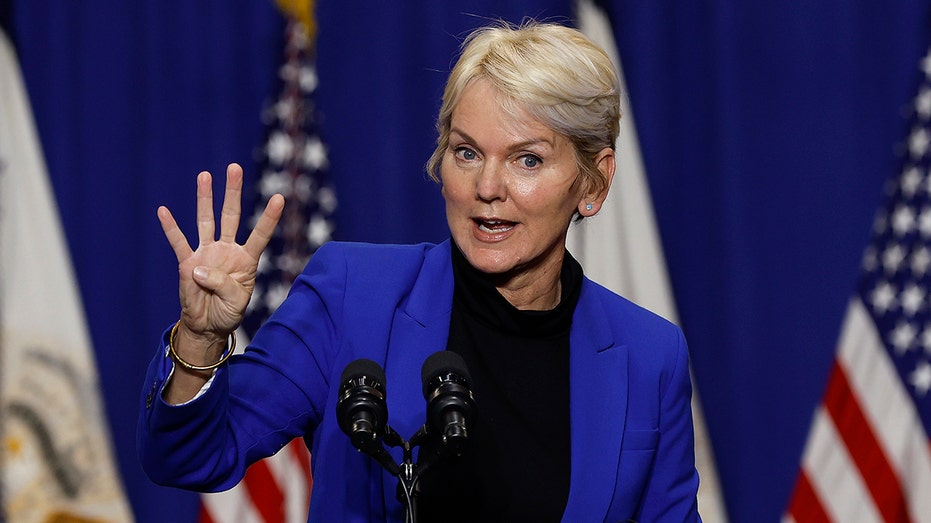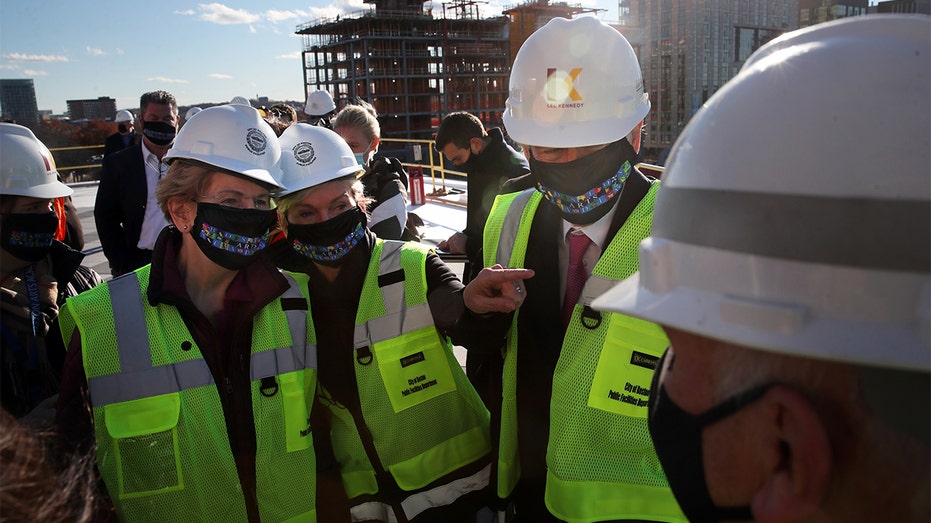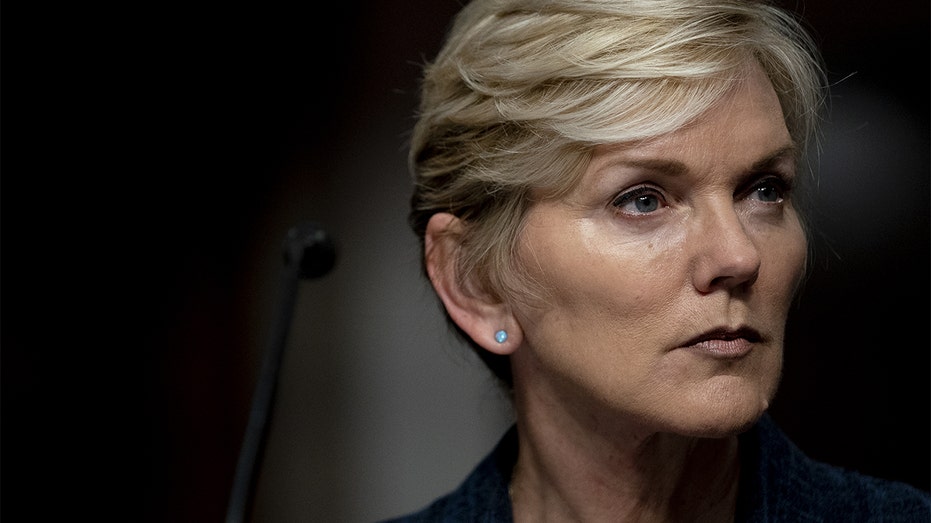Clean Energy Corps hiring for largest Energy Dept. expansion, modeled on Green New Deal proposal
Corps that looks to be modeled after expansive Green New Deal program favored by Democratic Party's progressive wing
The Energy Department will have its largest bureaucratic expansion since it was established in 1977, using $62 billion from the Bipartisan Infrastructure Law to create a Clean Energy Corps. But it's not entirely clear what the additional 1,000 new hires will do at the corps that looks to be modeled after an expansive environmental program favored by the Democratic Party’s progressive wing.
The hiring portal says: "The Clean Energy Corps is a diverse group of talented individuals committed to public service and with a mission of supercharging the clean energy revolution. … Regardless of whether you are new to clean energy, or have been doing this work for years — we want YOU as part of our Clean Energy Corps."
The Energy Department appears to cast its net wide, saying it is looking for people in the fields of engineering, grants and contract management, information technology, legal, public policy, communications and legislative affairs, among other fields.
PHIL FLYNN WARNS RUSSIA-UKRAINE TENSION ‘COULD BE MAJOR EVENT FOR ENERGY PRICES’
"We need you on our team," said Energy Secretary Jennifer Granholm, who hosted a livestreamed talk Monday on social media about the department's hiring strategy.

Energy Secretary Jennifer Granholm delivers remarks during an event at the Prince George’s County Brandywine Maintenance Facility on Dec. 13, 2021, in Brandywine, Maryland. (Chip Somodevilla/Getty Images / Getty Images)
The Clean Energy Corps looks to be modeled in part after the proposed Civilian Climate Corps that was in the failed $3.5 trillion Build Back Better social and environmental spending bill, The Hill reported. Yet, this would be a considerably scaled-down version of what Rep. Alexandria Ocasio-Cortez, D-N.Y., wanted in a Civilian Climate Corps with 1.5 million members.
"They are panicking because they failed to deliver a Civilian Climate Corps to the left’s donors," Tom Pyle, president of the pro-industry Institute for Energy Research, told Fox News Digital.
CONSUMERS ‘EXHAUSTED’ BY RISING GAS PRICES, INFLATION: BARUCH
Pyle said Congress should place parameters on what the corps can do, noting he’s concerned about how ambiguous the corps description and its hiring portal are.

Left to right: U.S. Sen. Elizabeth Warren, Energy Secretary Jennifer Granholm and U.S. Sen. Ed Markey talk while touring Boston Arts Academy in Boston, Dec. 3, 2021. (Craig F. Walker/The Boston Globe via Getty Images / Getty Images)
"Will it be contract employees or federal employees? The portal says they are hiring marketing and public affairs people. Will they be hiring lobbyists?" Pyle added.
The jobs will be across the country and some will be remote, according to the hiring portal.
"The Department of Energy’s Clean Energy Corps encompasses an incredibly diverse and talented group of people, including current staff and new hires spanning more than a dozen offices across DOE, working together to research, develop, demonstrate, and deploy solutions to the world's greatest energy challenges," an Energy Department spokesperson told Fox News Digital. "The Clean Energy Corps is rooted in public service and committed to supercharging the clean energy transition for all Americans."
The actual language in the bipartisan bill – supported by 19 Senate Republicans and 13 House Republicans who joined most Democrats – referenced "supply chains for clean energy technologies" and "clean energy demonstrations," but did not specifically note a "Clean Energy Corps."

Energy Secretary Jennifer Granholm listens during a Senate Armed Services Committee hearing in Washington, June 24, 2021. (Stefani Reynolds/Bloomberg via Getty Images / Getty Images)
"Expanding DOE’s workforce is an essential element of effectively putting the $62 Billion from the Bipartisan Infrastructure Law, appropriated to DOE, to work for communities across the country," the Energy Department spokesperson added. "The law specifically includes funding for supporting the workforce at DOE to administer and oversee the legislation’s programs, and the Clean Energy Corps will carry out this necessary function."
But it’s doubtful those Republicans that backed the proposal knew they would be voting for the largest expansion of Energy Department bureaucrats in history, said Mike Palicz, federal affairs manager for Americans for Tax Reform.
Palicz called the program a "make-work program for youth climate activists made to satisfy the AOC wing of the party." However, he noted that Ocasio-Cortez voted against the bipartisan plan because it did not go far enough.
"They passed a $1.2 trillion bill and the public didn’t know infrastructure would include 1,000 new bureaucrats," Palicz told Fox News Digital. "This is a backdoor Civilian Climate Corps that they tried to get into the Build Back Better Act. It’s stressed on the job application they don’t need experience. The wording is vague about what they will be doing. It talks about being committed to public service and the clean energy revolution. So apparently, so long as they have the revolutionary fervor, it’s enough to apply."
CLICK HERE TO GET THE FOX NEWS APP
He further added this is not what the private sector needs at this point.
"This comes at a time when restaurants and businesses can’t find applicants," Palicz said. "So the Energy Department is competing with small businesses for employees."
The White House has touted that the Bipartisan Infrastructure Law would be the largest investment in clean energy transmission in American history, and would include building thousands of miles of new, resilient transmission lines to facilitate the expansion of renewable energy, and research of advanced transmission and electricity distribution technologies.




















